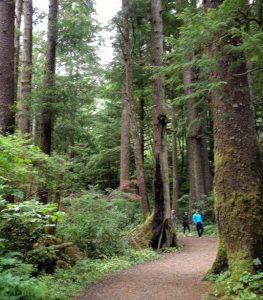 An article last month in Time celebrated nature’s healing power. Scientific evidence has been growing for years: Gazing on natural scenes helps hospital patients recover more quickly. Being in nature calms and soothes people and gives them more mental focus. Spending time in forests reduces anger and aggressiveness and increases feelings of happiness. The evidence only keeps mounting; very recent studies show that time in nature can lower blood pressure, increase altruism, strengthen the immune system, increase cancer-destroying cells, and lift spirits.
An article last month in Time celebrated nature’s healing power. Scientific evidence has been growing for years: Gazing on natural scenes helps hospital patients recover more quickly. Being in nature calms and soothes people and gives them more mental focus. Spending time in forests reduces anger and aggressiveness and increases feelings of happiness. The evidence only keeps mounting; very recent studies show that time in nature can lower blood pressure, increase altruism, strengthen the immune system, increase cancer-destroying cells, and lift spirits.
But why?
Why all this magic? How exactly does nature heal?
Some suggest that when we feel drained from navigating busy streets and busy lives, nature replenishes by not demanding anything from us. (An idea that sounds like it came from someone who really needed a break.) Other suggest that feeling awe leads people to be more 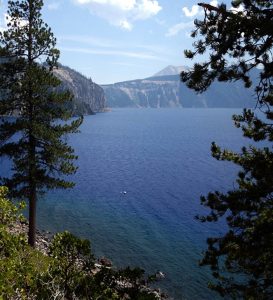 altruistic and eager to help because it reminds us that we’re not the center of the universe. Others draw attention to chemicals such as the antimicrobial essential oils, called phytoncides, that are emitted by trees and plants to keep pathogens and predators at bay. These oils create the aroma of the forest, and when humans sniff them they help us feel better by decreasing our stress hormone levels.
altruistic and eager to help because it reminds us that we’re not the center of the universe. Others draw attention to chemicals such as the antimicrobial essential oils, called phytoncides, that are emitted by trees and plants to keep pathogens and predators at bay. These oils create the aroma of the forest, and when humans sniff them they help us feel better by decreasing our stress hormone levels.
It’s alive!
Though each of these reasons speaks to a part of the truth, the real secret of nature’s healing power is much bigger and deeper than any of them—and at the same time much simpler.
Nature heals because it is alive.
Every part of nature has its own life. Every being is self-organizing and has its own independent trajectory. From atoms to rocks to flowers to birds to galaxies, every part of nature comes into existence, changes over time, and passes out of existence. Each enjoys its own character arc, its own lifespan, however different from that of human beings.
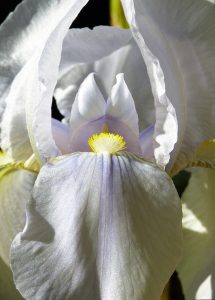 When we spend time in nature, we come into contact with aliveness. Nature is brimming with aliveness. Aliveness is vitality. Aliveness is healing.
When we spend time in nature, we come into contact with aliveness. Nature is brimming with aliveness. Aliveness is vitality. Aliveness is healing.
Many implications follow from nature’s aliveness. Here are a few of them.
Not an artifact
Other beings and parts of nature are independent of us. They are not artifacts of human making. Being around them is healing precisely because we didn’t create them and we don’t control them. An object we manipulate or control can’t offer healing because its source is no larger than us. By contrast, flowers, animals, and stars refresh and sustain us because they have their origin in a life force that is larger than any of us and is outside our control. (Art, though made by humans, often comes from that larger-than-human source and can refresh for the same reason.)
Varieties of vitality
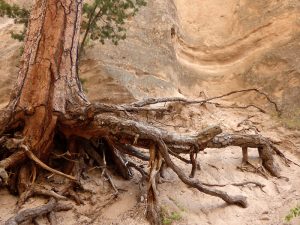 Walking or sitting in nature, we rub shoulders with millions of ways of being alive. The aliveness of trees is different from that of other species, and the aliveness of the tree over here is different from the one over there. Just as human variations are endless, so are the varieties of other beings. Spending time in nature,
Walking or sitting in nature, we rub shoulders with millions of ways of being alive. The aliveness of trees is different from that of other species, and the aliveness of the tree over here is different from the one over there. Just as human variations are endless, so are the varieties of other beings. Spending time in nature, 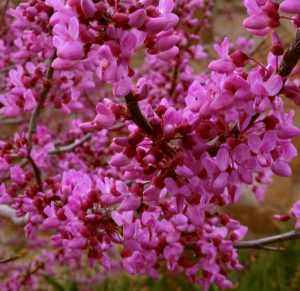 we absorb a few of the boundless flavors of others’ vitality; we are inspired and energized by them.
we absorb a few of the boundless flavors of others’ vitality; we are inspired and energized by them.
Bringing us back to our senses
Do you feel—especially in a crazier-than-usual election season—that people have lost their senses? Spending time in nature is a powerful antidote. Walking or sitting in nature prods us to breathe again, to loosen tight muscles, to open eyes or ears. Being near the vitality of other beings brings us back into our own bodies—back to our senses, both literally and figuratively. Sharpening the physical senses can do wonders for regaining a clear mind and a clear heart.
Reminding us who we are
Hanging out with living beings or parts of nature is healing because they 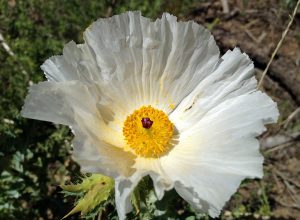 remind us who we are. By and large, they are less likely than humans to lose touch with themselves or to forget their purpose. A tree does not get distracted and forget to photosynthesize. A fish does not forget how to swim or a prickly poppy how to flower. Being near purposeful beings can give us courage to bring forward our own purpose as well. After communing with a flower or visiting an ocean, things can feel simpler, our path forward seem clearer.
remind us who we are. By and large, they are less likely than humans to lose touch with themselves or to forget their purpose. A tree does not get distracted and forget to photosynthesize. A fish does not forget how to swim or a prickly poppy how to flower. Being near purposeful beings can give us courage to bring forward our own purpose as well. After communing with a flower or visiting an ocean, things can feel simpler, our path forward seem clearer.
Acting in the moment
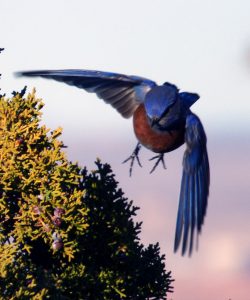 Birds fly. Plants grow. They don’t wait for someone to tell them what to do. They respond as they are moved, and they move instantly with what is needed in the moment. Being near them is healing—especially if you’re the impatient sort, like me—because when action is called for they don’t stop to think it over. Their instantaneous response is part of their healing gift.
Birds fly. Plants grow. They don’t wait for someone to tell them what to do. They respond as they are moved, and they move instantly with what is needed in the moment. Being near them is healing—especially if you’re the impatient sort, like me—because when action is called for they don’t stop to think it over. Their instantaneous response is part of their healing gift.
Why do we get distracted?
So why do humans get distracted, lose touch with who we are, forget our purpose? From Malidoma Somé, whose book The Healing Wisdom of Africa I edited many years ago, I learned that the Dagara of Burkina Faso believe it is possible to tell how intelligent various beings are—how close to the heart or source of reality—by how much language they use. 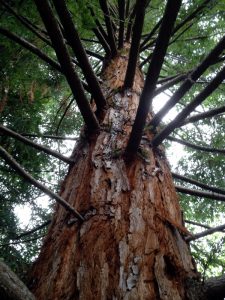 Plants and trees do not depend on language to survive, and so they are the most intelligent. Farther away from the source are animals, who need some language to get around in the world. And farthest away of all from the heart of reality are human beings, who depend almost entirely on words.
Plants and trees do not depend on language to survive, and so they are the most intelligent. Farther away from the source are animals, who need some language to get around in the world. And farthest away of all from the heart of reality are human beings, who depend almost entirely on words.
There is a great wisdom in pointing to language as the thing that leads us into exile from the source. The thinking mind, the frontal lobe, is magnificent in what it has allowed us to accomplish; it is equally powerful in its ability to draw us away from simply being present in this moment.
Coming into presence
Coming into the presence of other beings helps us come into presence itself. Into this moment. Into our own connection with life and purpose and well-being. It is not easy to stay connected to presence. Stepping away from the soup of human words can bring us back to what is life-giving. Nature’s healing power is available. Imbibe it. As often as you can.
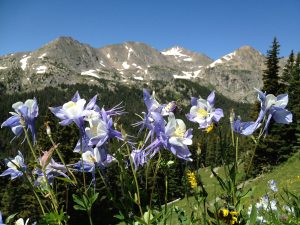















Priscilla,
This is a beautiful expression of the teaching. Thanks so much for putting it out there. I will share it on Facebook.
Thanks, Linda! Hope it’s helpful in your work too.
Priscilla,
I enjoyed reading this and found it quite educational too! I was especially fascinated—well, sat up and took notice—by the belief of the Dagara of how much intelligence various beings have by how much they use language—human beings being the farthest away! Hmm, kind of has a way of reminding us to remain humble in the bigger picture, eh?!
Gwen, I’ve been thinking about that piece of Dagara philosophy ever since I learned of it. What a great antidote to this society’s arrogance in placing ourselves at the top of the intelligence scale! I wrote a little more about that philosophy in Kissed by a Fox, chap. 9, the “Shvana” chapter. If we really believed that trees were more intelligent than us, would we be more motivated to spend time around them?
Beautiful post, Priscilla. I’ve always wondered why I respond so strongly to nature. Your idea of “aliveness” makes so much sense. To that I would add “complexity,” because so much is going on at any one time: from plants, animals, wind, clouds, sky.
Kathy, that’s a great addition to the list! I thought of another one too: unpredictability—another facet of aliveness.